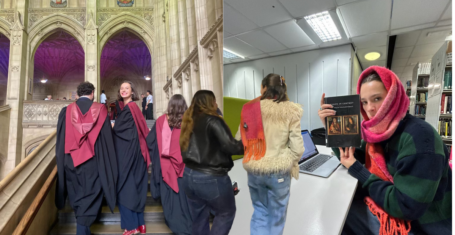
Liverpool student left ‘paranoid’ after being spiked works with police on safety campaign
20-year-old Shannon Fleming helped students make posters and a video depicting the dangers of spiking
An Edge Hill University student left “horrified and paranoid” after being spiked on a night out has worked with police to create an awareness campaign.
Shannon Fleming was spiked in a nightclub in Ormskirk in January last year, shortly after she had signed up to partake safety campaign focusing on the dangers of spiking, the Liverpool Echo reports.
The 20-year-old student since decided to use her experience to benefit other students and young people, particularly those amongst the student community .
Shannon ended up in hospital as a result of the spiking last year. She recounted how she had suffered an asthma attack in the club and someone got her some water which she believed had been tampered with, saying “that must have been it”.
Despite making a full recovery physically, the effects on Shannon’s mental health have been drastic and she recounted feeling worried. Speaking of leaving the house she said: “I was quite paranoid, quite wary of going out in general. Definitely for a couple of months, especially because it was so dark and wintery when it happened”.
The Edge Hill student has since helped to create a short drama with drama students which aims to highlight the dangers of spiking.
The Lancashire Police campaign is ongoing and is part of their work to prevent violence against women and girls, aiming to provide information and guidance on where students can go for help and support.
The first phase saw marketing students create posters on the symptoms of spiking and encouraged people to take care of themselves and their friends, with these posters being displayed around the university and also in local licensed premises.
Most Read
The second phase was the creation of an awareness video, produced by creative writing, performing arts, media and policing students depicting the dangers of leaving a drink unattended and was in which students can get support both on and off of campus.
These students have produced a multitude of resources with support from West Lancashire Police, West Lancashire Borough Councils Community Safety Partnership, the Lancashire Partnership Against Crime (LANPAC) and the Lancashire Violence Reduction Network. This comes as a part of Lancashire Police’s work to prevent violence against women and girls, as well as provide information and guidance on where students can for for help and support.
Shannon said that her advice to be aware of spiking on a night out is that: “The bubbles shouldn’t be floating [in a drink], the drinks could be a funny colour”.
Lynda Bardy, pro vice-chancellor of student experience at Edge Hill Universities said: “Our students have been at the centre of this campaign from the very start, and have already provided some fantastic practical ways to stay safe on a night out which have made a real impact across West Lancashire.
“It’s really important to be aware of the help and support on offer. This video is a powerful tool to help raise awareness of the signs and symptoms of drink spiking, as well as how to seek help if you need it”.
Although still shaken by the ordeal, Shannon feels taking part in the campaign has made her more alert to dangers and feels her partaking in the campaign is making a positive difference which will hopefully educate students and help limit spiking amongst university students.
She said: “At least I can help other people be aware of other people, that’s a good thing”.
Funding from partners has also provided anti-spiking drinks covers which have been distributed at licensed premises. Shannon feels taking part in the campaign has made her more alert to dangers while on a night out.
Speaking with regards to the campaign, Detective Sargent Diane Higham from Lancashire Police said: “We want everyone to feel safe when they enjoy a night out in Lancashire and this project was born last year out of an increase in the number of reports of spiking. Thankfully, there is no longer an increase in reports but it’s important that people don’t become complacent and continue to do what they can to protect themselves on a night out.”
Recommended stories recommended by this writer:
• University of Liverpool moves up four places in The Times Good University Guide
•Staff member at the University of Liverpool blames strikes on ‘antagonistic’ management
•Uni of Liverpool student dies in van crash on first day of term
















